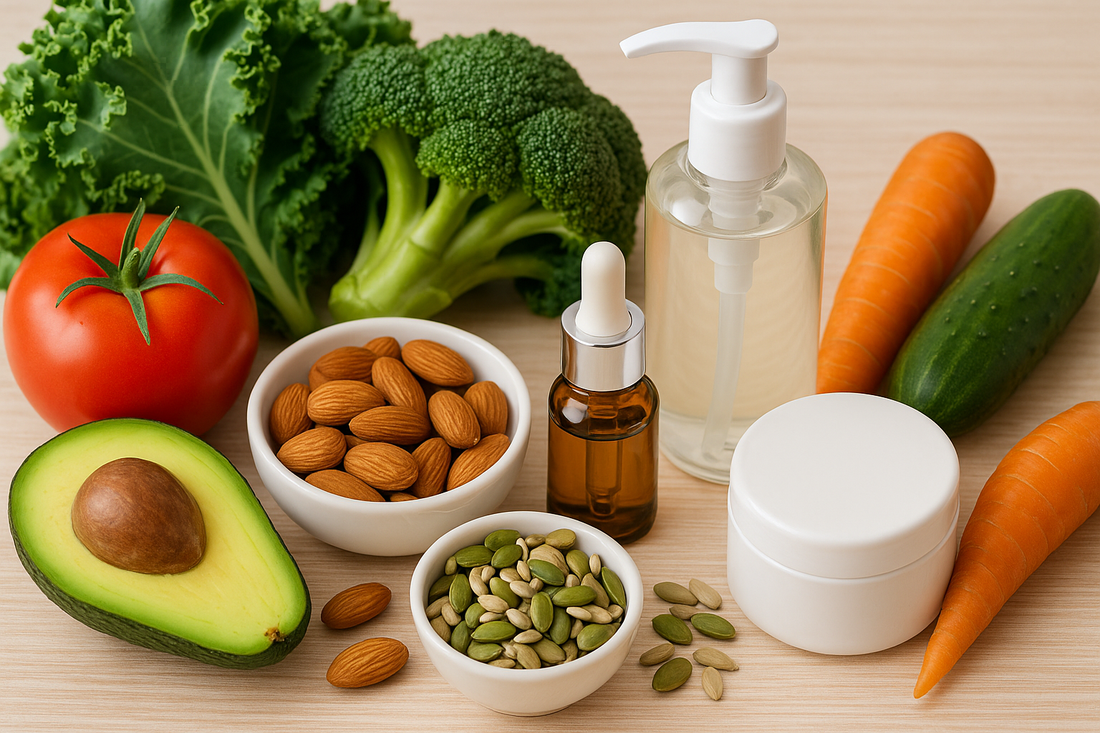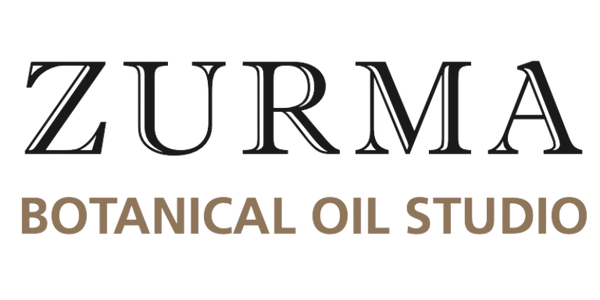
How Diet and Lifestyle Shape Your Skin Health and Skincare Routine
Share
Healthy skin is not only the result of what you apply topically—it reflects what you eat, how you sleep, how stressed you are, and the environment you live in. While cleansers, oils, and moisturisers have a key role in keeping skin functioning well at the surface, many of the processes that influence skin clarity, hydration, and resilience happen from within.
Diet and Nutrient Intake
Your skin is a living organ that depends on nutrients to renew itself, maintain structure, and protect against external stressors. Diets rich in whole, unprocessed foods can reduce inflammation and support repair. Antioxidants like vitamin C, found in berries, citrus, and leafy greens, are essential for collagen synthesis and neutralising free radicals caused by UV exposure. Vitamin A, present in sweet potatoes and leafy greens, regulates skin cell turnover and is important for acne-prone or dry skin. Vitamin E, abundant in seeds and nuts, helps protect against oxidative stress and supports barrier integrity.
Essential fatty acids, especially omega-3s from sources like flaxseed, chia, walnuts, and oily fish, reduce inflammatory skin conditions and help prevent dryness by supporting the skin’s lipid layer. Zinc plays a role in immune function and skin healing, while selenium and polyphenols help reduce photoageing and inflammation. A diet low in refined sugars and dairy has also been shown to reduce acne severity in some individuals, likely due to decreased insulin and androgen activity.
Gut–Skin Connection
The gut and skin are both barrier organs, and emerging research confirms that gut health is directly linked to skin appearance and function. A diverse gut microbiome supports immune regulation and keeps inflammation down. Including fermented foods in your diet like sauerkraut, kimchi, kefir and prebiotic fibres like garlic, onions, and oats can support microbial diversity and overall skin calmness. Any disruptions to a healthy gut microbiome, like from too much ultraprocessed, sugar and salt laden foods, can trigger skin issues like acne, eczema, or rosacea.
Lifestyle and Skin Physiology
Sleep, stress, and daily habits also shape how your skin behaves. During deep sleep, skin cells regenerate and produce collagen, elastin, and hyaluronic acid. Inadequate or poor-quality sleep can result in increased transepidermal water loss, slower wound healing, and greater sensitivity. Chronic stress increases cortisol levels, which can impair barrier function, trigger skin oil overproduction, and worsen inflammatory skin conditions.
Movement and fresh air improve circulation and lymphatic drainage, which support detoxification and nutrient delivery to the skin. Physical activity also boosts mood, indirectly supporting healthier lifestyle choices that benefit skin.
Your Skincare Routine Should Reflect Your Lifestyle
A person’s skincare routine should align with the realities of their body and lifestyle. If your diet is anti-inflammatory, your skincare doesn’t need to do as much heavy lifting—fewer active ingredients and simpler formulations may be sufficient. If you’re experiencing stress, sleep deprivation, or dietary challenges, your skin may need more support through barrier-repairing moisturisers, soothing hydrosols, and antioxidants applied topically.
At Zurma, we believe skincare should complement—not compensate for—your lifestyle. Our range of natural plant-based creams, oils, serums, and hydrosols are formulated to work with your skin, not override it. Whether you’re restoring balance after travel, stress, or dietary change, or simply maintaining your glow through seasonal shifts, your routine should feel like a ritual of nourishment—both inside and out.
